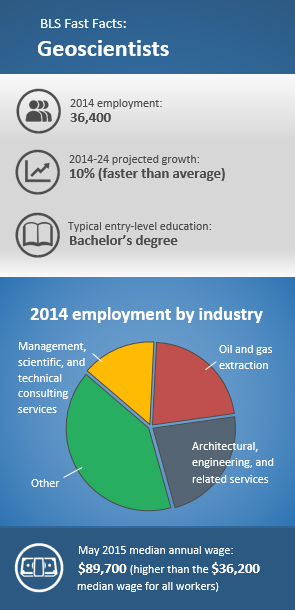All Categories
Featured
Table of Contents
Introducing Geophysical Surveying in Hilton Oz 2020

The main model for the radial structure of the interior of the Earth is the initial reference Earth design (PREM). Some parts of this model have been updated by current findings in mineral physics (see post-perovskite) and supplemented by seismic tomography. The mantle is generally made up of silicates, and the boundaries between layers of the mantle are consistent with phase shifts.

Schematic of Earth's magnetosphere. Flows from left to.
Inside the magnetosphere, there are reasonably thick regions of solar wind particles called the Van Allen radiation belts. Geophysical measurements are usually at a specific time and place. Precise measurements of position, together with earth contortion and gravity, are the province of geodesy. While geodesy and geophysics are separate fields, the two are so closely linked that many clinical companies such as the American Geophysical Union, the Canadian Geophysical Union and the International Union of Geodesy and Geophysics include both.
Geophysical Survey in Westfield WA 2021
, integrates astronomical collaborates and the regional gravity vector to get geodetic coordinates. This method only provides the position in 2 coordinates and is more difficult to utilize than GPS.
Relative positions of two or more points can be figured out utilizing very-long-baseline interferometry. Gravity measurements became part of geodesy because they were required to related measurements at the surface area of the Earth to the referral coordinate system. Gravity measurements on land can be made utilizing gravimeters released either on the surface area or in helicopter flyovers.
Water level can also be determined by satellites using radar altimetry, adding to a more precise geoid. In 2002, NASA launched the Gravity Healing and Climate Experiment (GRACE), where two twin satellites map variations in Earth's gravity field by making measurements of the range between the 2 satellites using GPS and a microwave varying system. Satellites in area have actually made it possible to gather information from not just the noticeable light area, but in other locations of the electro-magnetic spectrum. The worlds can be identified by their force fields: gravity and their magnetic fields, which are studied through geophysics and area physics. Determining the changes in acceleration experienced by spacecraft as they orbit has enabled fine details of the gravity fields of the planets to be mapped.
About Environmental Geophysics in Girrawheen Aus 2022

Since geophysics is concerned with the shape of the Earth, and by extension the mapping of functions around and in the planet, geophysical measurements consist of high precision GPS measurements. As soon as the geophysical measurements have actually been processed and inverted, the analyzed outcomes are outlined utilizing GIS.
Many geophysics companies have actually developed internal geophysics programs that pre-date Arc, GIS and Geo, Soft in order to fulfill the visualization requirements of a geophysical dataset. Exploration geophysics is applied geophysics that frequently uses remote sensing platforms such as; satellites, airplane, ships, boats, rovers, drones, borehole noticing devices, and seismic receivers.
Aeromagnetic information (aircraft collected magnetic data) gathered using conventional fixed-wing aircraft platforms must be corrected for electromagnetic eddy currents that are developed as the airplane moves through Earth's magnetic field. There are also corrections connected to modifications in measured potential field intensity as the Earth rotates, as the Earth orbits the Sun, and as the moon orbits the Earth.
Uses For Geophysical Data in Boya Australia 2023
Signal processing includes the correction of time-series information for undesirable noise or errors presented by the measurement platform, such as airplane vibrations in gravity information. It also includes the decrease of sources of sound, such as diurnal corrections in magnetic information. In seismic data, electromagnetic data, and gravity information, processing continues after mistake corrections to consist of computational geophysics which result in the last interpretation of the geophysical information into a geological interpretation of the geophysical measurements Geophysics emerged as a separate discipline only in the 19th century, from the intersection of physical location, geology, astronomy, meteorology, and physics.
The magnetic compass existed in China back as far as the fourth century BC. It was used as much for feng shui when it comes to navigation on land. It was not up until good steel needles could be forged that compasses were utilized for navigation at sea; before that, they might not keep their magnetism enough time to be beneficial.
By looking at which of 8 toads had the ball, one could identify the direction of the earthquake. It was 1571 years before the first style for a seismoscope was published in Europe, by Jean de la Hautefeuille. It was never ever developed. Among the publications that marked the start of contemporary science was William Gilbert's (1600 ), a report of a series of careful experiments in magnetism.
Geophysical Survey Requirements In California Waters in Doubleview WA 2023
Dietmar; Sdrolias, Maria; Gaina, Carmen; Roest, Walter R. (April 2008). "Age, spreading rates, and spreading asymmetry of the world's ocean crust". Geochemistry, Geophysics, Geosystems. 9 (4 ): Q04006. Bibcode:2008 GGG ... 9. 4006M. doi:10. 1029/2007GC001743. S2CID 15960331. "Earth's Inconstant Magnetic Field". science@nasa. National Aeronautics and Area Administration. 29 December 2003. Recovered 13 November 2018.
Runcorn, S.K, (editor-in-chief), 1967, International dictionary of geophysics:. Pergamon, Oxford, 2 volumes, 1,728 pp., 730 fig Geophysics, 1970, Encyclopaedia Britannica, Vol. Introduction to seismology (2nd ed.).
Latest Posts
Geophysical Survey Methods in Champion Aus 2021
Geophysical Survey - Salisbury Archaeology in Hocking Australia 2021
What Can I Do With A Major In Geophysics? in Carine Australia 2023